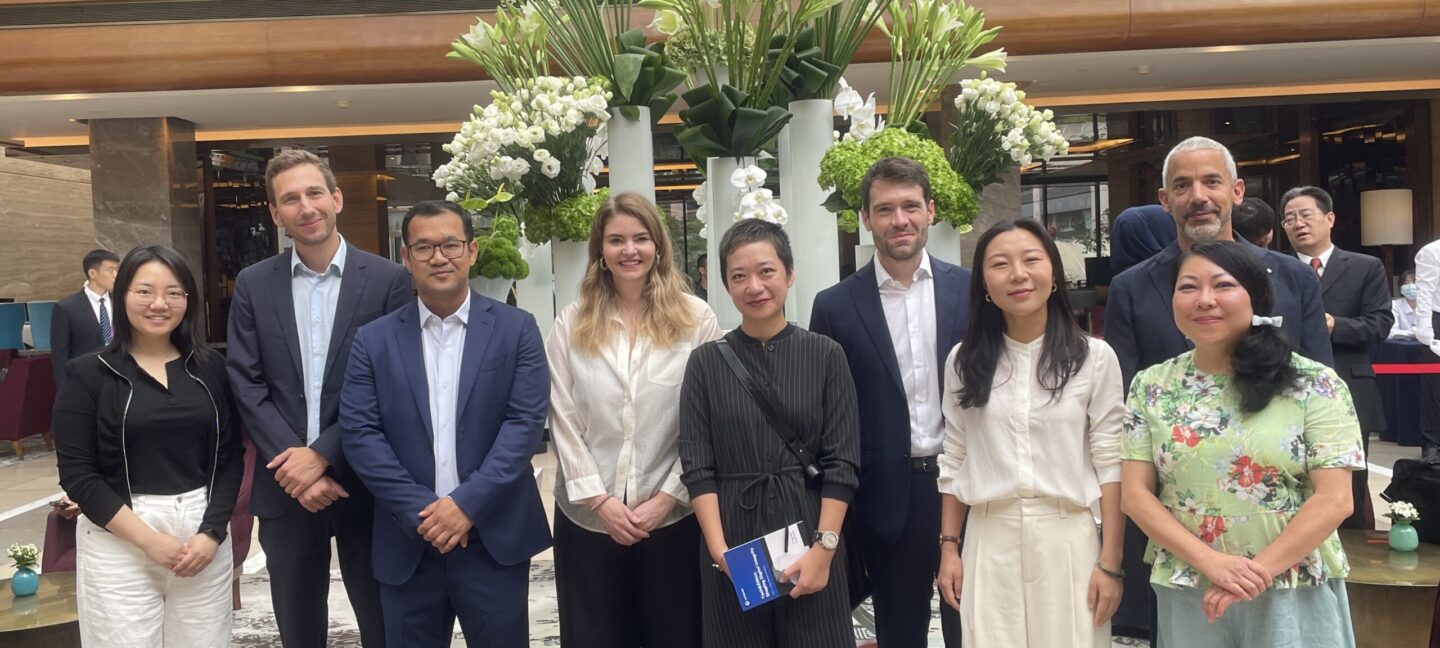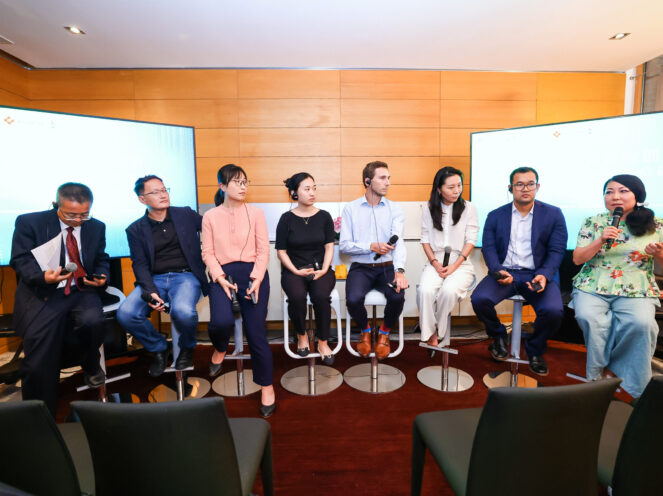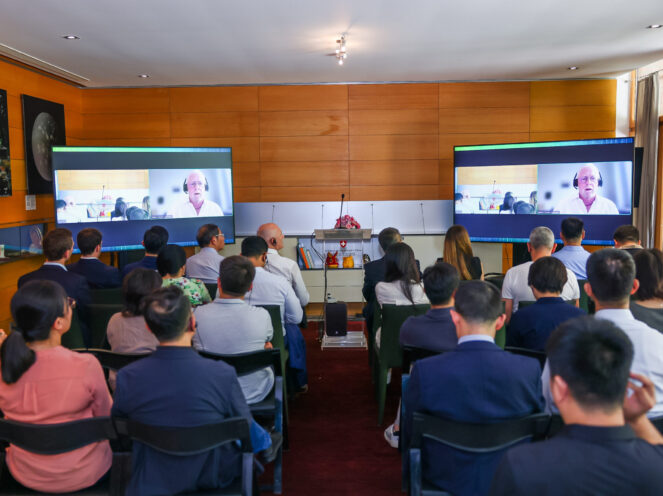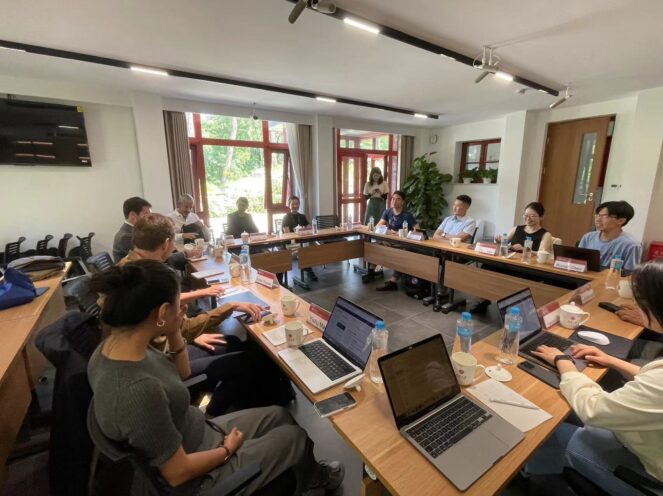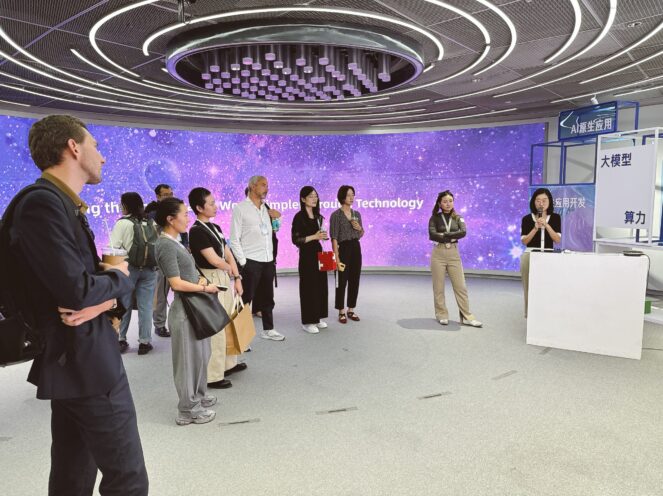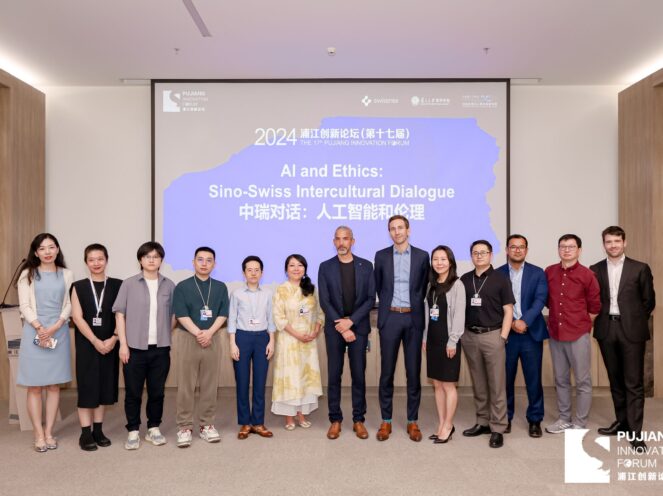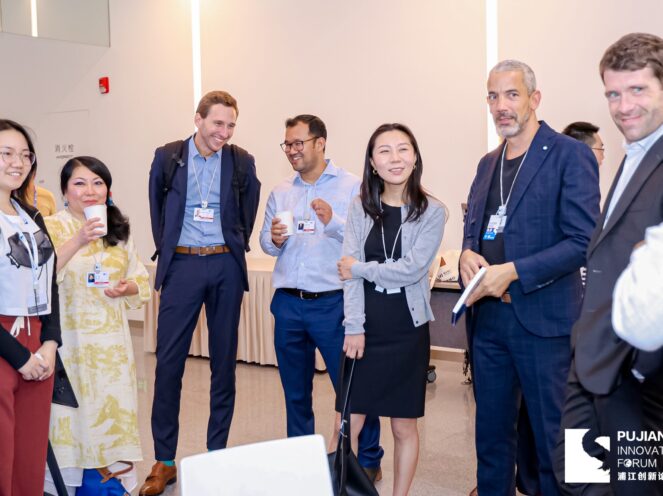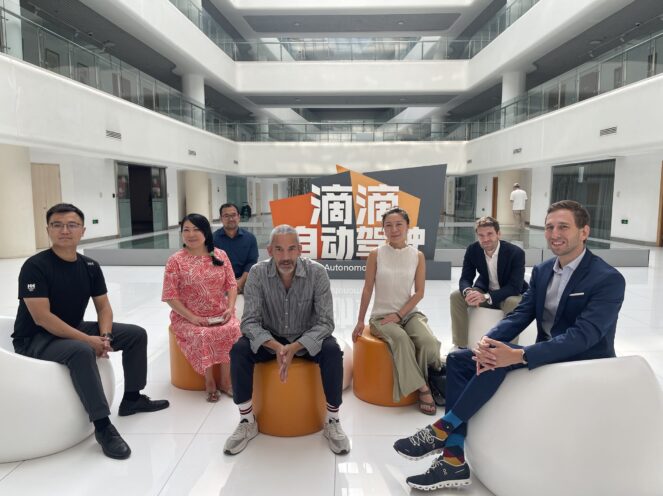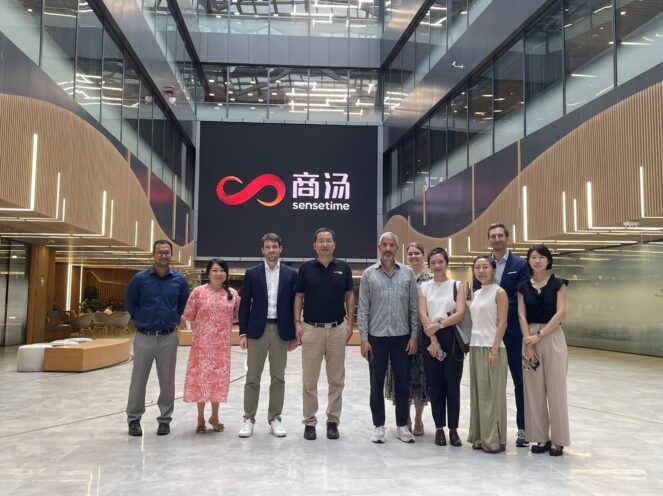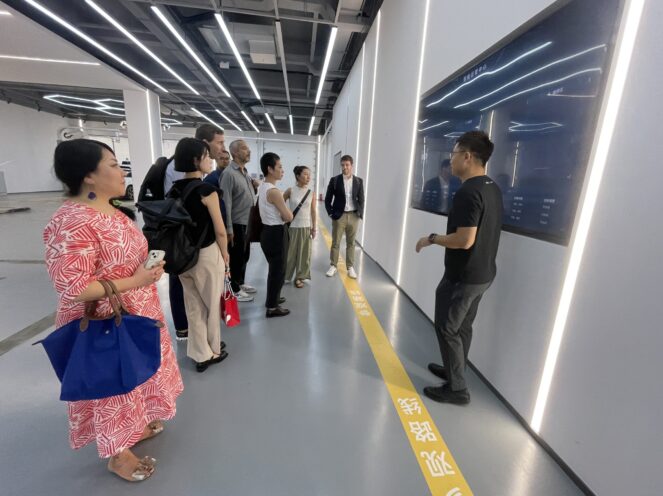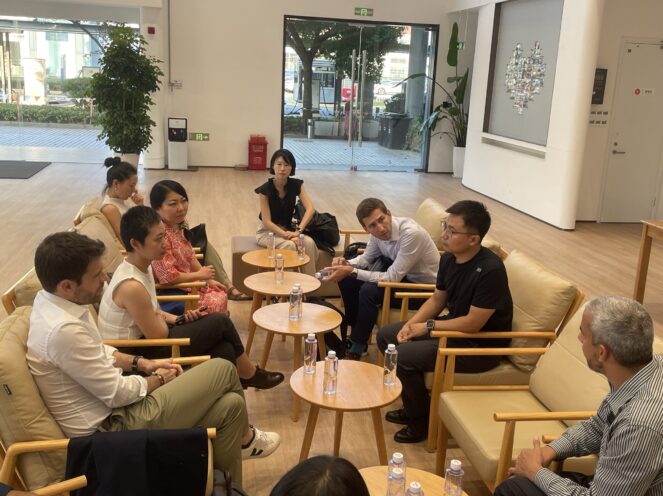In China, convenience often takes precedence over data privacy, a contrast to the more privacy-conscious approach in Switzerland. For instance, leveraging AI and computer vision to flag e-bike riders without helmets and passing this information to law enforcement in the street is a practice that would likely be unacceptable in Switzerland. Another key difference is the aggregation of sensitive health data for medical research, which seems more feasible in China, while privacy and security concerns in Switzerland make such practices more difficult.
Patrick Tinguely Senior Researcher and Lecturer, Chair of Strategic Management and Innovation, ETH Zurich Academic Direction, Strategy and Artificial Intelligence Lab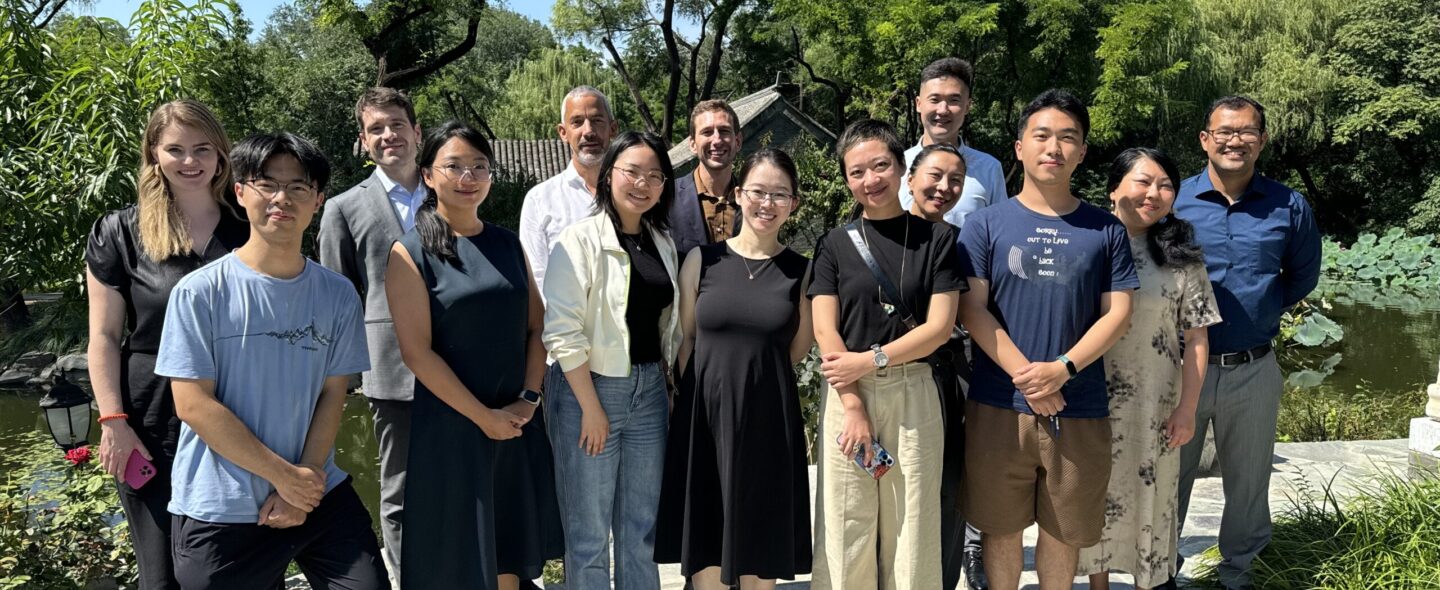
From September 5 to 9, 2024, Swissnex in China brought together Swiss and Chinese experts to tackle some of the most urgent questions surrounding AI’s role in shaping our future. Over five days, this initiative focused on the responsible development of AI, digging into the ethical dilemmas brought by the digital age. From legal frameworks to societal values, ethical considerations have to go into the very design of AI systems, ensuring progress remains sustainable and human-centric.
The interdisciplinary delegation from Switzerland, featured Patrick Tinguely, Ning Wang, Adrian Notz, Yash Raj Shrestha, Yishu Mao, Yuanjun Feng, and Marie Soulière.
Program highlights
The program featured a series of high-level events:
- Company visits such as Alibaba, Baidu, Sensetime, and DiDi who are advancing rapidly in the field of AI
- The 2nd Sino-Swiss Research Integrity Workshop: Responsible Research and Innovation, hosted at the Swiss Embassy in collaboration with Frontiers
- Closed-door discussions with the Berggruen Institute and CITIC Press Group
- A session at the Pujiang Innovation Forum on the ethical governance of science and technology, concluding with an intercultural dialogue on AI and ethics
During these exchanges, Swiss and Chinese researchers and industry leaders engaged in in-depth discussions on the future of AI. These conversations increased the Swiss delegation’s knowledge and opened its horizons to global collaboration in AI governance.
Day 1 in Beijing
The first stop was Alibaba Group, where the delegation explored the company’s latest digital innovations. Discussions revolved around the current landscape and challenges of global AI governance, with a focus on China’s contributions to these global conversations and the industry’s perspective on the challenges ahead.
Following the visit at Alibaba, the Tech&Ethics program participants moved to the Swiss Embassy, where the 2nd Sino-Swiss Research Integrity Workshop on Responsible Research and Innovation was held in collaboration with Frontiers. The workshop emphasized the transformative power of AI in research and the critical importance of maintaining research integrity. The need for original, reliable, and repeatable scientific research was underscored, highlighting the ethical dimensions of AI in research.
Day 2 in Beijing
A visit to Peking University facilitated informal discussions with AI ethics and governance researchers. The dialogues revealed the complex gap between AI’s technical capabilities and its ethical implications, a gap that presents both scientific and societal challenges. The cultural diversity in defining ethics and values was a central theme, illustrating the complexity of achieving a global consensus on AI governance.
As our Beijing trip drew to a close, we were privileged to visit Baidu, where the delegation experienced a ride in their autonomous cars. This hands-on encounter provided a tangible example of AI’s practical applications and the ethical considerations inherent in such technological advancements.
Wrapping up our time in Beijing, we had a closed-door session with the Berggruen Institute, which enabled us to engage in more profound discussions about the future of AI governance. A particularly engaging topic was the ongoing debate about the very definition of AI, highlighting the lack of a global consensus and the challenges this poses for governance.
Day 4 and 5 in Shanghai
The “AI and Ethics: Sino-Swiss Intercultural Dialogue” at the Pujiang Innovation Forum, in collaboration with Fudan University and the Institute of Technology Ethics for Human Future, explored the risks and challenges of AI. Generative AI’s capacity to spread false information and its impact on human emotions, trust, and authenticity were discussed, along with ethical questions surrounding intellectual property and the potential misuse of AI.
Subsequently, the delegation embarked on visits to SenseTime and DiDi, two leading AI companies. At SenseTime, we were granted an exclusive behind-the-scenes look at the company’s AI technologies, while at DiDi, we explored the intricate application of AI in urban mobility. These visits sparked discussions that centered on the myriad challenges related to autonomous car safety, the ethical dilemmas that can emerge on the road, and the broader societal acceptance of such innovative technologies.
Reflecting on the entire Tech&Ethics program, our goal was to foster open, cross-cultural dialogues on technology and ethics. The discussions showed us just how complex it is to create ethical standards in a world where tech is evolving so fast. We walked away with a stronger sense of the importance of these diverse perspectives and collaborations.
Stay tuned for more insights and reflections from the Swissnex in China Tech&Ethics program through our White Paper coming soon.
What differences have you noticed between Switzerland and China regarding AI, ethics, and governance?

In my view, Chinese scholars are rather progressive in their work related to AI, ethics, and governance. I think this is due - at least partially - to the fact that the government is very open to the development of new technology, supportive of R&D investment in technology by the industry, and encourages academia to explore different ways of knowledge acquisition, communication, and dissemination. Switzerland, in comparison, has shown a relatively lesser degree and narrower scope of momentum on addressing the ethical and societal implications of AI in particular, and of technology in general.
Ning Wang Research Group Leader, University of ZurichAt the government policy level, China has proactively rolled out various instruments to govern AI with its vision to maintain social stability, while Switzerland has remained observant to global developments with the wish for harmonisation across jurisdictions focusing on fundamental rights. At the academic and industry research level, Chinese researchers are devoting much resources to support and implement government initiatives, while Swiss researchers are explorative and decentralized.
Yishu Mao PhD candidate, Department of Communication and Media Research, University of ZurichWhat is one thing you learned that surprised you?
It was very surprising that at the Berggruen round table discussions, 98% of the people think that there are major differences in the cultural values driving the development and use of AI. One example given was that equality means different things to different people. Normative ethics and descriptive ethics seemed to be mixed up in the discussions. Yes, equality can be interpreted as a starting condition or distributive result, and we must face the reality of an unequal world, but that shouldn't stop us from seeing that we all aspire the same things. Only by acknowledging that can we effectively address the unequal conditions and the resulted different priorities. Ethics and politics can not be separated in the discussions about AI governance in different countries.
Yishu Mao PhD candidate, Department of Communication and Media Research, University of ZurichI was struck by how technology is perceived differently in China. For instance, when it comes to entertainment, speed and efficiency often take priority over authenticity for Chinese consumers, leading to the rise of “digital humans” as substitutes for human influencers—a trend that is less likely to occur in Western societies. What surprised me most was the discovery of more common ground on AI governance than I had initially expected. While each nation faces its own unique challenges, fostering a shared understanding is crucial for driving meaningful progress toward ethical AI in business, society, and science.
Patrick Tinguely Senior Researcher and Lecturer, Chair of Strategic Management and Innovation, ETH Zurich Academic Direction, Strategy and Artificial Intelligence Lab